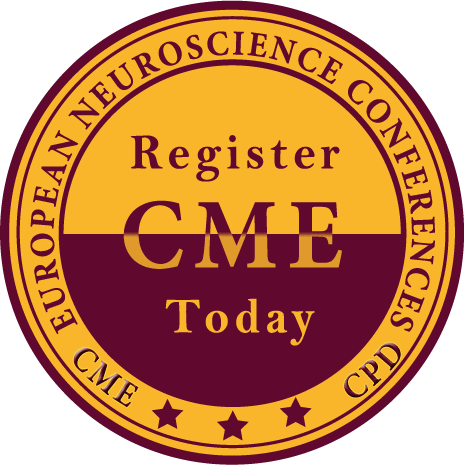
Hanan Sheikh Ibrahim
Cleveland Clinic Abu Dhabi, UAE
Title: Pseudobulbar affect, cognitive dysfunction and depression in poorly controlled diabetes
Biography
Biography: Hanan Sheikh Ibrahim
Abstract
This study is a case of unrecognized neuro cognitive disorder and pseudo-bulbar affect in a patient with multiple vascular risks, poorly controlled diabetes with subcortical lacunes masquerades as depression treated with Mirtazepin. 64 year old ex-smoker male with PMH of hypertension, long standing poorly controlled type 2 diabetes was presented with insomnia and depression, poorly controlled diabetes where trial of SNRI was partially helpful in his mood but did not help with his crying bursts. He is still driving with multiple episodes of loss of consciousness due to hypoglycemia. His physical exam was unremarkable except for emotional burst of laughter and crying that did not affect congruence. On CGA, he was found to have 3 impaired IADL domains (ability to drive with many car accidents, difficulties handling finances, inability to handle medication, MMSE test - 26/30, low education level, impaired clock drawing test and impaired trail B test, impaired speed, attention and executive skills, GDS was 4/15, FRAIL scale was 4/5. His labs revealed HBA1C above 10. He has normal B12, and folate. His MRI revealed white matter disease, pontine infarct, left thalamic lacunar infarct and left lenticular lacune in addition to cortical atrophy. Patient was recognized as early vascular dementia with associated pseudo bulbar affect masked by depressive symptoms. The case triggered a change of his holistic care that revamped his HbA1C goals and advanced care planning. In summary, general psychiatrists and primary care clinicians may fail to recognize pseudo bulbar palsy and cognitive dysfunction during clinic visits using routine history and physical pseudobulbar affect (PBA), appearing as abrupt episodes of uncontrollable laughter or crying that are incongruent or independent of mood, occurs in many neurological brain diseases or following brain injury. It is important to identify PBA as a different entity from depression, treat and identify underlying vascular cognitive important

